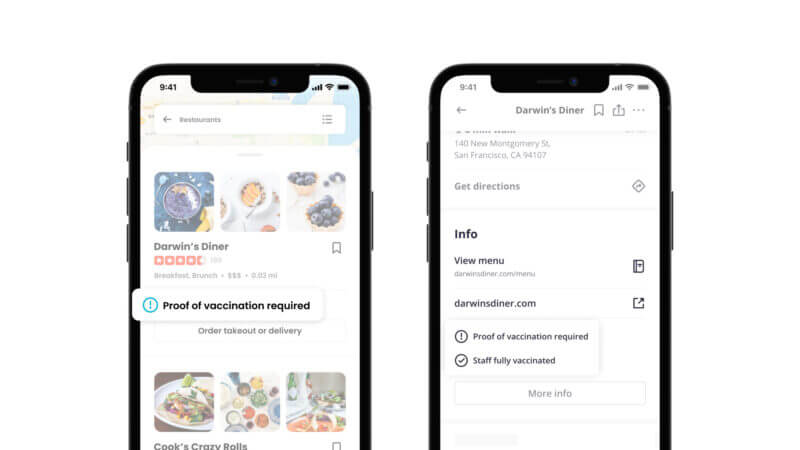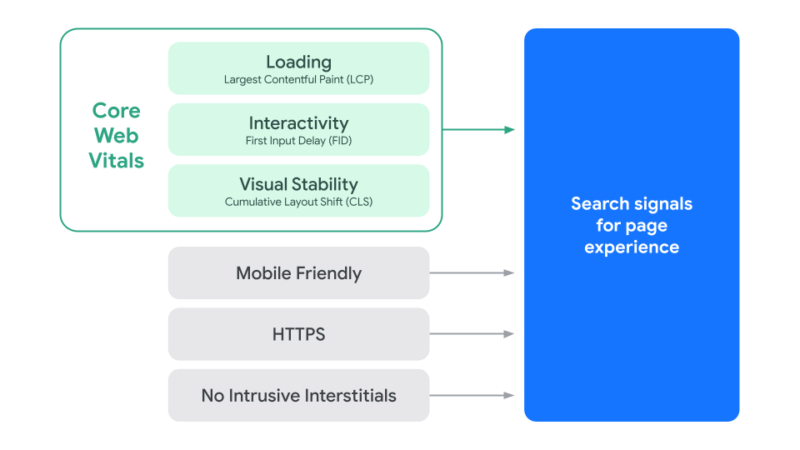If you saw expanded search terms in Google Ads, it was a glitch; Friday’s daily brief
Plus, trying to get shadow banned on Insta for science
Search Engine Land’s daily brief features daily insights, news, tips, and essential bits of wisdom for today’s search marketer. If you would like to read this before the rest of the internet does, sign up here to get it delivered to your inbox daily.
Good morning, Marketers, and I’m trying to work from a coworking space this week.
It’s strange, to say the least. Everyone is social-distancing… together? As an introvert, it can definitely feel like a lot sometimes, but I’m making it work, designers. When I was chatting with Barry Schwartz about it, he brought up that it’s a lot like shared hosting. I guess I’m the website in this analogy.
I’ve seen a few articles about the pros and cons of shared hosting, and they are confusing if you’re not an expert. Is it bad for SEO? Can it affect your site resources? Yes and no and yes and no. A top-ranking Forbes article says, “The downside is that the resources available will be limited and could even be affected by the actions of others on the same server. For example, if one user on the server gets a virus, it can put everyone else at risk.”
The featured snippet when I ask “Is shared hosting bad for SEO?” tells me: “The choice of a web hosting provider or a web hosting plan does not affect the SEO of a website, if all other things are equal and adheres to Google webmaster quality guidelines.” But then goes on to say, “It is indeed a fact that most low quality spammy websites use shared hosting for hosting most of their sites.”
So what’s a business or SEO newbie to do? Follow John Mueller’s advice from last year and “Host where it makes sense for you.”
Carolyn Lyden,
Director of Search Content
Sorry. The Google Ads search term disclosure was a glitch
Big womp. “Back in September 2020, Google announced it would show less search term data in the Google Ads Search Terms report. As you can imagine, the advertising community was not happy. But something changed yesterday and all the search term data is now showing in that report,” wrote Barry Schwartz for SERoundtable.
Many PPCers responded on Twitter hoping it was here to stay: “Please be feature … please be feature … please be feature … please be feature … please be feature …” tweet-begged CypressNorth’s Greg Finn. But later yesterday Barry confirmed that it seems to be a bug as it just … stopped working for advertisers. We hope you were able to download your search term reports before the glitch was fixed.
Yelp introduces “Proof of vaccination required” and “Staff fully vaccinated” profile attributes

Yelp is introducing two new COVID-related profile attributes, the “Proof of vaccination required” and “Staff fully vaccinated” attributes, the company announced Thursday. Users will be able to filter searches using these attributes and the “Proof of vaccination required” attribute will be visible in search results.
Why we care. Given the rapid spread of COVID’s Delta variant, these attributes may help customers feel safer when visiting a local business. Yelp’s “additional safety measures” may also help to curb any potential blowback from bad actors seeking to leave reviews based on their stance about COVID vaccines as opposed to their firsthand experiences with the business.
Google drops safe browsing as a page experience ranking signal

Google is removing the safe browsing signal from the Google page experience update, the company announced. “We recognize that these issues aren’t always within the control of site owners, which is why we’re clarifying that Safe Browsing isn’t used as a ranking signal and won’t feature in the Page Experience report,” the company said.
Why we care. This is one less ranking signal and factor you need to worry about when it comes to your performance in Google Search. Of course, you don’t want to provide an unsafe browsing experience for your users, but you can still learn about those in Search Console, but it won’t count against you in your rankings.
Search Shorts: Trends in PPC, salary negotiations, and start your GA4 account now
Key trends in PPC, reporting and analytics. Consumers are more online than ever before. Ecommerce sales jumped $174.87 billion from 2019 to 2020, and there’s still an indication that trends begat by COVID won’t go away anytime soon and may even become our “new normal.” For PPC marketers, that means a focus on the following five trends.
Ready to switch jobs or move up in your career? Don’t forget to negotiate your salary. It’s a job-seeker’s market in SEO and PPC right now. Salary negotiation gives you the chance to ensure you’re paid what you’re worth. Check out these 6 salary negotiation tips from yours truly.
Not ready for the switch to GA4? Well, at least get your account started ASAP. Make sure you’re running Universal and Google Analytics 4 concurrently because “Data will not transfer to GA4 from Universal Analytics” Julie Bacchini reminds us on Twitter.
What We’re Reading: Trying to get shadow banned — for science
“Shadow banning is the first thing every social media marketer’s mind goes to when they experience sudden drops in engagement or reach,” wrote Stacey McLachlan for Hootsuite.
However, Instagram’s CEO says shadow banning isn’t actually a thing: “If someone follows you on Instagram, your photos and videos can show up in their feed if they keep using their feed. Being in [Instagram’s Explore page] is not guaranteed for anyone. Sometimes you’ll get lucky, sometimes you won’t.”
To test her “how to get shadow banned” experiment, McLachlan decided to act like a bot. She said the most SMMs believe that there are three main ways to get banned:
- Using too many hashtags
- Using irrelevant hashtags
- Writing generic comments on a bunch of other people’s posts
So she hopped to it. Posting pictures that would normally get engagement with WAY too many hashtags, spam-commenting things like “Nice post” to random accounts on the Explore page, and posting stock photos of her city to her feed.
Did it work? In short, no. She couldn’t get shadow banned. The experiment actually got her account a ton of comments and support, which may be why. McLachlan’s engagement did dip during the shadow ban attempt — going from 17% to just above 9%. But her reach remained the same. “I wouldn’t say I’ve been ‘shadow banned’ so much as I’ve been ‘correctly noted as being a liar,’” she wrote.
Is shadow banning real? Or is Instagram just good at determining what users want when they search for hashtags and content on the platform? Or are the two one and the same?







